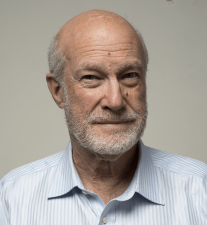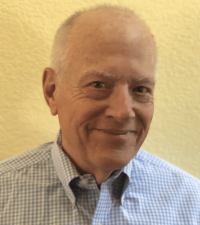Preparing for a Safe Return Home After Surgery

The following is a guest blog by Dr. Jeffrey Foster. This blog discusses a topic from Insider’s Guide to Quality, Affordable Healthcare — a book and accompanying website, aimed at helping readers become knowledgeable and active health care consumers.
Whether your surgery was elective and planned or an unexpected emergency, there are common questions to consider regarding your post-surgery plan. Your return home may be directly from the hospital, a post-operative recovery in a rehabilitation facility or from a skilled nursing facility. In any case, plan to be discharged from the hospital sooner than you might have expected because shorter stays reduce the risk of hospital-related complications (infections, skin ulcers, etc.) and reduce medical and hospital expenses.
Begin working with your hospital discharge coordinator or social worker soon after admission to the hospital. If you’ll need nursing, rehabilitation or other medical services at home it’s often better to initially secure more services than you will need. This is because it’s easier to reduce services rather than increase the frequency of at-home visits.
It’s recommended to obtain copies of all your hospital records prior to discharge or download them at home from your patient portal, as there is often a delay in your outpatient doctor(s) receiving the official discharge summary from your hospital doctor (usually a hospitalist). Having your hospital records allows you to share them at follow-up appointments with your outpatient doctors and other health professionals. You should also add a copy of these to your personal health record (PHR).
Questions You Should Ask
Have your patient advocate or reliable family member by your side when your doctor (and others) explain your discharge plans. Your advocate can take notes and even use a voice recorder so everyone understands and works together to implement the plan.
Among the many questions you and your advocate consider asking, prioritize some of the following:
- What are common post-surgical complications I need to watch for? Whom exactly do I need to call or leave a message with if there is a complication? Is it more efficient to text or email that person? Obtain specific names and numbers to call.
- How much pain can I expect, and what pain pills should I take and for approximately how long?
- If relevant, how do I and my helper best take care of the incision site, dressings, and drainage tubes?
- What kind of equipment and supplies should be in place at home before I return?
- When can I expect to resume my daily activities? How gradually should I take it? When can I resume driving and, if relevant, my sex life?
- How long will the wound take to heal, and what kind of scar is likely?
- Will I need physical therapy at a separate rehabilitation center, within the hospital or at home and for how long? When at home, what rehabilitation company should I consider and will it be in-network so my insurance will cover the major portion of the cost?
- Should my follow-up visit be with my surgeon, my primary care physician or both? How soon should the follow-up visit be scheduled?
- What new medications started while in the hospital should I continue? Which medications I was taking at home should I resume? Which should I stop?
Even when the surgery has gone well and all questions have been answered, there may be unique personal matters that complicate the post-surgery period. Bring these to the attention of your health care team as soon as possible.
A Personal Story
Rita, a television news reporter living with her husband and stepson in New York City, was only forty-seven years old when she noticed small hard nodules in both breasts. Her primary care physician referred her to a breast surgeon. After extensive tests, she was diagnosed with early-stage cancer. A second opinion from a specialist confirmed the diagnosis.
She was understandably frightened and wondered how having a bilateral mastectomy, lymph node removal and medicine to curb her estrogen (and cause menopause) would affect her career, self-image and her already strained marriage. When her husband chose to get his teenage son into a drug rehabilitation program rather than be with her during her surgery, she felt abandoned, resentful and depressed.
The surgery was successful and she was discharged home with planned cosmetic breast implants two months later. She developed hot flashes and irritability. Her ambivalence about sexual intimacy was further aggravated by her husband’s indifference, preoccupation with work and his son’s problems.
Rita finally confessed all her miseries to her oncologist. She was referred to a psychiatrist who suggested weekly psychotherapy sessions and the antidepressant venlafaxine 75 mg/day for her depression and menopausal symptoms. He also referred her to a women’s support group for breast cancer survivors and for marriage and family counseling. The combination of these treatment approaches, in addition to being free of cancer after five years, led to the remission of her depression, improvement in her marriage, family, and social life and the return to her successful career.
About the Authors
 Lawrence W. Lazarus, M.D., has specialized in geriatric medicine and psychiatry at Rush Medical School and University in Chicago, Illinois, where he founded the Geriatric Psychiatry Fellowship Program. He is a former president of the American Association for Geriatric Psychiatry and was awarded numerous teaching and research grants from the National Institute of Mental Health. Dr. Lazarus is in private practice in Santa Fe, New Mexico.
Lawrence W. Lazarus, M.D., has specialized in geriatric medicine and psychiatry at Rush Medical School and University in Chicago, Illinois, where he founded the Geriatric Psychiatry Fellowship Program. He is a former president of the American Association for Geriatric Psychiatry and was awarded numerous teaching and research grants from the National Institute of Mental Health. Dr. Lazarus is in private practice in Santa Fe, New Mexico.
 Jeffrey Foster, M.D., has spent his clinical and academic career with Geriatric Psychiatry as a prominent focus. He has worked closely with primary care physicians, nurses, social workers and various specialists in hospital and outpatient settings. A former President of the American Association of Geriatric Psychiatry, Dr. Foster has received various teaching and research grants from the National Institute of Mental Health.
Jeffrey Foster, M.D., has spent his clinical and academic career with Geriatric Psychiatry as a prominent focus. He has worked closely with primary care physicians, nurses, social workers and various specialists in hospital and outpatient settings. A former President of the American Association of Geriatric Psychiatry, Dr. Foster has received various teaching and research grants from the National Institute of Mental Health.
Kissane DW, Love A, Hatton A, et al. Effect of cognitive-existential group therapy on survival in early-stage breast cancer. J Clin Oncol. 2004;22(21);4255-4260.